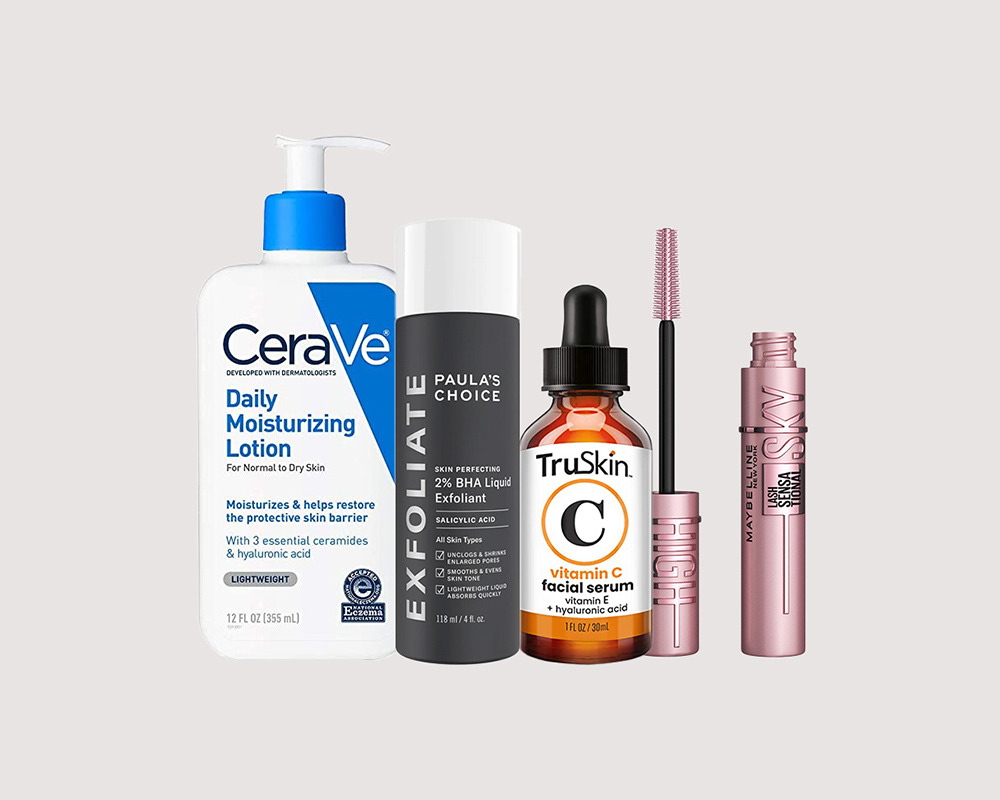
[ad_1]
Almost all women have been there—the moment you notice the ripples in your upper thigh or the slight dip in your butt cheek— but cellulite still too often feels taboo or shameful to talk about. When I say almost all women, I mean it. According to Cleveland Clinic, 80 to 90 percent of all women who’ve gone through puberty have cellulite. Meanwhile, less than 10 percent of men have the condition and explaining that injustice is a whole other article in itself.
After chatting with doctors, experts and the general population, we found that the majority of women are uncomfortable discussing their cellulite, even sometimes with their doctor. If almost every woman has cellulite, why does it still feel so embarrassing to talk about? There are a few factors, and a slew of perfectly smoothed-over photos on social media doesn’t help.
People often feel that cellulite is their fault, which of course, it isn’t
While we all know that wrinkles are largely due to natural aging and out of our control, outside of good skin care, the same notion is often not applied to cellulite. One day getting a cellulite-nixing procedure may be as widely and comfortably talked about as getting Botox Cosmetic, but that still feels far off. When we asked doctors why patients are apprehensive about discussing cellulite, it was mostly related to a feeling of shame or guilt for the condition when in reality, it’s natural, very common and often hard to prevent or treat.
“It’s a very, very common concern, but it also brings with it a stigma of being out of shape or overweight,” says Charlotte, NC dermatologist Gilly Munavalli, MD. However, he points out that the reality is that there are “underlying anatomic reasons for cellulite formation that are out of the control of the patient that aren’t necessarily associated with being overweight.”
Philadelphia, PA dermatologist and Avéli provider Nazanin Saedi, MD says “cellulite is emotional,” and if you’ve ever had it, you know that can be true. “Many women think that they have cellulite because of something they did (or didn’t do) when it’s really not their fault!” Dr. Saedi notes that cellulite is generally a result of genetics and hormones rather than diet and exercise.
Doctors have seen this in their practices
Doctors have seen varying degrees of patient apprehension when it comes to broaching the topic of cellulite. “It’s a difficult and challenging cosmetic concern to approach with patients due to the sensitive nature of the topic,” says Dr. Munavalli. Reno, NV, plastic surgeon Tiffany D. McCormack, MD says when patients do open up about the condition, they sometimes “discuss embarrassment in general and the fact that they avoid wearing swimsuits, shorts or tight leggings in public.”
Dr. Saedi feels that her patients are more open to talking about their cellulite with her since she’s a female dermatologist. “Many of my male colleagues have mentioned that their female patients don’t bring it up or even ask about it,” says Dr. Saedi. “Unfortunately, this could be a result of the continued shame and embarrassment that comes with having cellulite, but could also be a result of women thinking that there isn’t anything they can do about it.”
Luckily, the stigma is dissipating
While there is still a discernible stigma surrounding cellulite, we’ve come a long way. Miami dermatologist Dr. Deborah Longwill says the stigma is notably reduced and she largely credits the body-positivity movement. “Body positivity has a powerful presence in today’s society and social media, encouraging people to be more open about it,” says Dr. Longwill.
There’s more work to be done to break down the stigma
While the body-positivity movement has helped mitigate the stigma of cellulite and emboldened women to love their natural bodies, there’s still more progress to be made. Dr. Saedi notes that “Unfortunately, [cellulite’s] presence affects the daily decisions some women make, like what they wear and in which activities they participate.” One way to address this is to normalize talking about cellulite since it is such a common condition. “It is essential to encourage body positivity and create a safe space for patients to express their concerns truly,” says Dr. Longwill.
Experts need to debunk misinformation
Knowledge is power, and understanding the complexities of cellulite can help reduce the stigma. “There is a lot of misinformation out there about cellulite, so we as a medical community need to do a better job educating women,” says Dr. Saedi. “We need to be open to talking about cellulite with our patients and honest about what cellulite is—and isn’t—and about what causes it.” She believes that helping women understand “cellulite is a fact of life, that they are not alone and that it’s not their fault” will help ease the negative feelings that can come with the condition.
If you want to reduce your cellulite, talk to your doctor about options
Once you’re comfortable discussing cellulite, if you’re interested, talk with your doctor about what options you have. Dr. Saedi says patients may be hesitant to discuss cellulite because they’ve tried so many things at home with no success, so they’re skeptical. “To be honest, until recently, we as physicians haven’t had a lot of great options to offer them,” says Dr. Saedi. “Now there are new procedures that reliably address the primary structural cause of cellulite, like Avéli,” which is a new FDA-cleared minimally-invasive one-time treatment for cellulite on the butt and thighs. Another potential treatment is Qwo, the first and only FDA-approved injectable option to help improve moderate to severe cellulite in the butt.
Dr. Munavalli, who also points to Avéli as a great new treatment, says, “there are more options than ever before to successfully treat cellulite.” He feels that once these actual anatomic causes of cellulite are explained to a patient, it’s more likely they’ll be interested in treatment.
“Women can choose whether they want to do something about their cellulite or if they don’t,” Dr. Saedi says. “We need to emphasize that there should be no judgment either way.” The point is that women should feel comfortable discussing cellulite.
Find a Doctor
Find a NewBeauty “Top Beauty Doctor” Near you
[ad_2]
Source link






